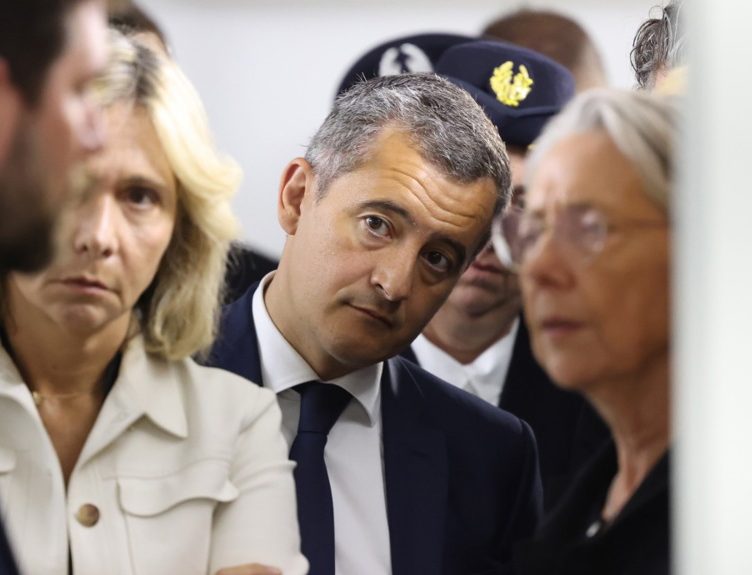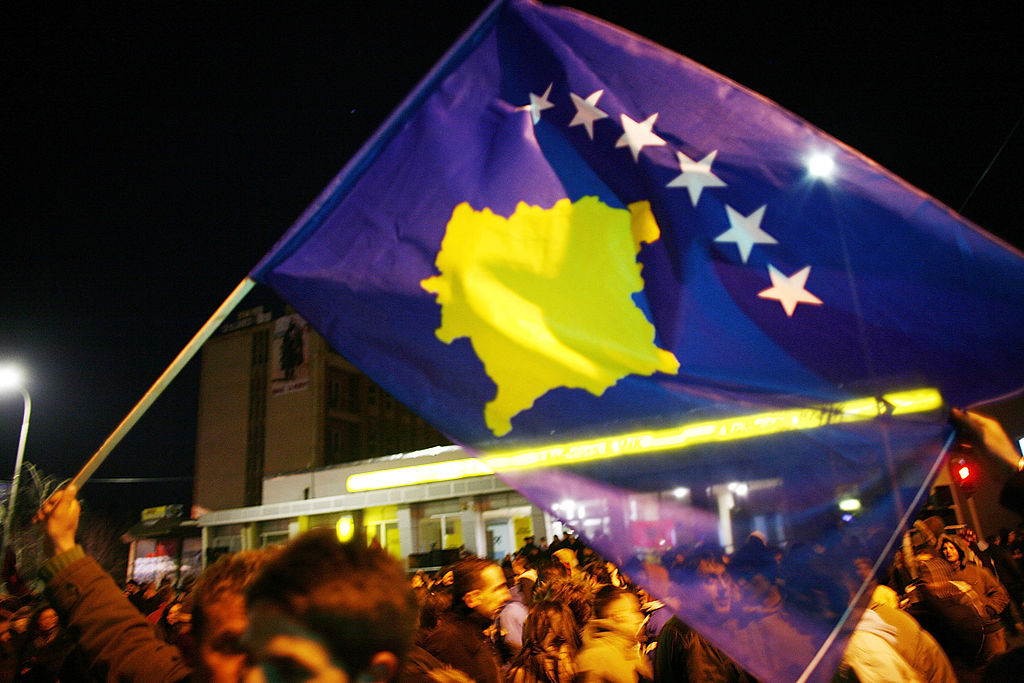With a population of under 6 million and sitting on the edge of the European Union, Slovakia is not usually foremost in the minds of the denizens of the Berlaymont. But the upcoming general election on September 30 is causing uncertainty in the halls of Brussels’ European institutions.
For many outside observers, the primary issue is the question of Slovakia’s support for Ukraine and whether, after the elections, the country will continue to have a pro-Western government. That is amid concerns it may well have what many fear will be a pro-Russian administration after the vote.
Under the surface, there are more complex issues at play. Questions of corruption and governmental instability, an urban-rural divide, the ongoing feud between different branches of the nation’s police and, of course, “the economy stupid!”
With more than 14 political parties battling it out to win the hearts of over 4 million registered voters, the feuds, negotiations and power-plays are complex.
The Major Players
The Left
Slovakian politics does not fall into the Left-Right spectrum as it is understood in most of Western Europe. Slovakia’s Left wing, while being in favour of a stronger welfare state and a tax-and-spend approach, is highly socially conservative by Western standards.
Kristina Ballova, a Slovakian journalist and commentator, told Brussels Signal that in Slovakia “Left and Right play less and less of a role politically”.
Within the Left, Robert Fico and his Smer party – meaning “Direction – Social Democracy” – are the leading contenders, slimly topping the polls at around 20 per cent.
Fico was one of Slovakia’s longest-serving prime ministers and dominated national politics until he was forced to resign in 2018. That came after the murder of Ján Kuciak, a journalist who had published an in-depth investigation into links between the Slovak Mafia and the government.
Fico has most recently caused concern over his stance against Slovakia’s support for Ukraine. “If Smer enters the government, we will no longer send arms and ammunition to Ukraine,” he told Associated Press.
Similar to Smer is the Hlas party. It is led by former Smer member Victor Pellegrini who temporarily took over as prime minister after Fico’s resignation.
Hlas generally presents itself as a more moderate, broad-tent and pro-EU version of Smer. In truth, it is more of a political vehicle for Pellegrini himself.
Hlas led the polls for several years but in the spring of 2023 its support fell after Pellegrini said it would act as a “loyal opposition”, causing many of the party’s anti-establishment supporters to turn back to Smer.
Speaking to Brussels Signal, Slovakian political scientist Dr Juraj Marusiak said that, due to polarisation, there was “no space for such a moderate opposition in Slovakia”.
Hlas is currently in third place in the polls at around 14 per cent.
The Right
Slovakia’s Right can be considered to be quite radical compared to much of Europe.
The more hard-line Republika party is enjoying stronger support. Founded by an MEP and former member of the Neo-Nazi L’SNS party Milan Uhrík, it is vehemently against NATO and the Ukraine war.
At 8 per cent support, many fear that Republika, along with the national-conservative and Euro-sceptic Slovak National Party, could act as a kingmaker after the elections.
Marusiak additionally pointed out that many of its leading team members are former military and ex-security services, which he said made it “very dangerous” in relation to the Slovakian political scene.
While Fico is critical of support for Ukraine, he has ruled out cooperation with Republika if it insists on Slovakia exiting NATO or the EU. Despite that, many still believe such a Right-Left coalition remains on the cards.
Ballova stated: “The closeness of the left-wing Social Democrats to right-wing, Slovak-national parties … [is] greater than ever.”
Some feel that it is possible the one hard-Right party that would stay out of such a coalition is Sme Rodina – “We are family”, which supports Ukraine in its war against Russia.
Sme Rodina is generally focused on pro-traditional family issues, as well as anti-LGBTQI+ issues and anti-gender ideology positions. Its unmarried leader Boris Kollár has had 13 children with 11 different women.
The Centre
The main dividing line in Slovakian politics is between the Right and Left and the centre to centre-Right. The centre is generally pro-free market and pro-EU.
The great liberal hope is Progressive Slovakia, a newer party that is both economically and socially permissive. It is the only major party in the country to strongly advocate gay marriage and LGBTQI+ rights.
In the latest polls it is closely tailing Smer with around 19 per cent.
One of Progressive Slovakia’s strongest cards is the sitting President Zuzana Čaputová, who helped co-found the party before her election in 2019.
Čaputová is one of the most trusted figures in Slovakian politics, having been a vocal anti-corruption journalist in her youth. That stance earned her the moniker of being the “Slovak Erin Brokovich”.
Čaputová has, though, also recently signalled her intention resign from politics, apparently exhausted after having to preside over three years of governmental crisis.
The centre and centre-Right’s chances are also hurt by the wide range of small parties that make up its ranks.
Slovakian parties have to meet a 5 per cent threshold before they can enter parliament and many fear the small parties will split the vote, meaning numerous centre-Right and liberal politicians will not be able to take up seats.
This pick-n-mix bag of runners includes the libertarian and “soft Eurosceptic” party SASKA – “Freedom and Solidarity”, the older KDH – “Christian Democratic Movement”, alongside small parties such as Modrí – “the Blues” and the Democrats, both recently founded by former prime ministers.
The most dramatic fall will likely be taken by the Ordinary People and Independent Personalities party, better known by its Slovakian acronym OL’aNO. It is a broad, anti-corruption and populist party, similar to the Five Star Movement in Italy.
OL’aNO stormed the 2020 elections with a landslide victory, becoming the biggest party in the parliament. The instability caused by the antics of its provocative leader Igor Matovič dragged the country through a succession of fractious governments, spurring the current elections. OL’aNO’s support has slumped to 6 per cent.
The Issues at hand
In spite of the wide array of parties, for many in Slovakia the choice is between the not good and the even worse.
One Slovakian official, speaking anonymously to Brussels Signal, said that while Fico was associated with corruption, he represented order having served as prime minister twice before.
In contrast, the centre-Right and liberals have presided over several years of instability and in the past year the country has been run by a succession of unelected caretaker governments.
Ballova said Fico had been able “to win back voters’ trust after resigning in 2018 over the murder of journalist Jan Kuciak”.
“Who would have thought that Fico would shuffle the political cards in Slovakia again?” she added.
Progressive Slovakia is running with what Marusiak said was a “fresh slate” of candidates. That may work against it as the party is seen by many as too similar to OL’aNO in 2020 and thus they fear a repeat of the instability that followed.
Support for Fico is also an “expression of deep dissatisfaction with the government”, said Marusiak, because the economy “is deteriorating very rapidly”.
The same shockwaves from the war in Ukraine and the COVID-19 pandemic that most of the West has suffered have also hit Slovakia. As well as an already poor prosperity level by EU standards, the country now faces crises in inflation, a rising cost-of-living and a burgeoning budget deficit.
In the midst of this, Fico has capitalised on the decision of the caretaker governments to send considerable amounts of aid to Ukraine.
Many Slovakians are highly critical of the war, with a Globsec Trends poll showing that 51 per cent blamed Ukraine and the West for causing the war, against 40 per cent who blame Russia.
The same report points out that Slovakians’ trust in their government currently stands at 18 per cent.
Stability has also taken a heavy hit by what Slovakian media has called “the Police War”.
Beginning in 2021, this has seen the national Slovak Police Force engage in a long-running tit-for-tat exchange with the nation’s internal intelligence services. Both accuse the other of being riddled with corruption and infiltrated by organised crime groups.
The fallout has seen both branches making arrests of one and others’ members.
This has further exacerbated political polarisation. Liberal Slovakians believe that the intelligence services are acting on behalf of corrupt Smer members.
Other Slovakians think that President Čaputová and Progressive Slovakia have done little to reign-in the national police, who are seen as becoming an increasingly rogue force in the state.
For many Slovakians who consider themselves conservative and pro-Western, the options appear “bad or very bad”, according to Ballova. While the hard-Right Republika and Slovak National Party are too extreme, a PS-led Government hardly seems a better option.
“The progressive party … presents itself as the leader of all moderate and democratic parties but presents a radical programme … the liberalisation of abortion and marriage for all is to be enforced, the right to self-determination and sex education from early childhood are to be enforced,” she said.
Ballova said that plays on the rural-urban dynamic. While liberal parties appeal “much more to the liberal society in Bratislava”, Fico and other populist candidates have seen strong support in the more industrial regions and the countryside.
Fico, himself originally a rural lawyer, “understands the political mood of the Slovaks in the regions very well and plays on it”, she added.
With elections due in two days’ time, many observers across Europe will be keenly watching. The results and the intricate coalition talks that will follow will not only determine who takes the prime minister’s seat at Bratislava.
It will also determine whether the EU will see another one of its Member States turn rogue at a time when the bloc is desperately struggling for unity.





